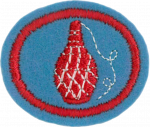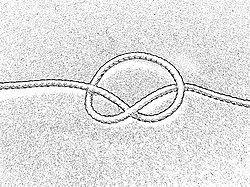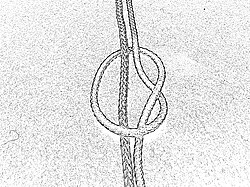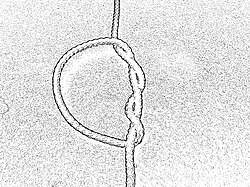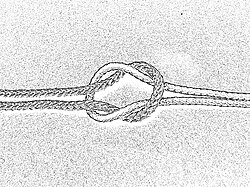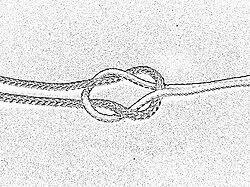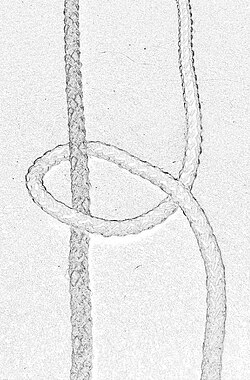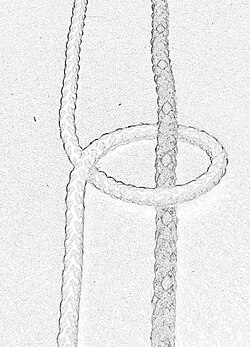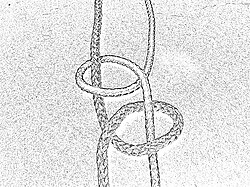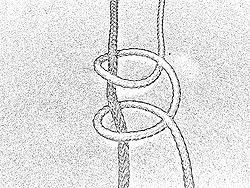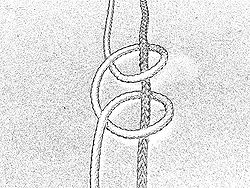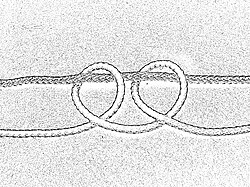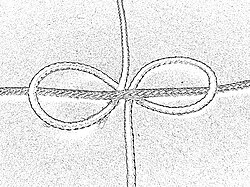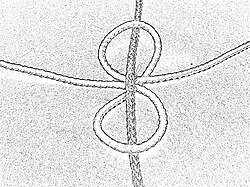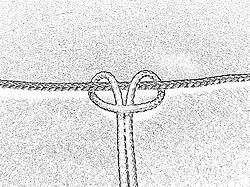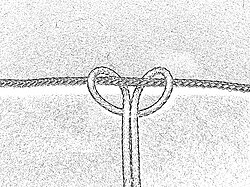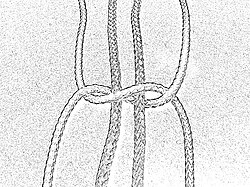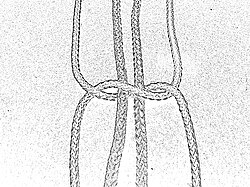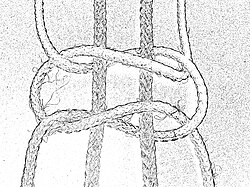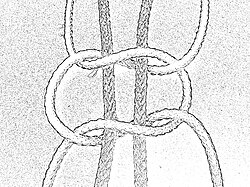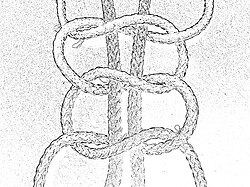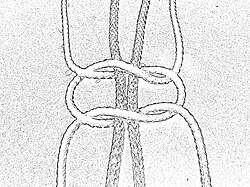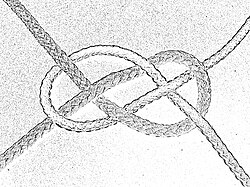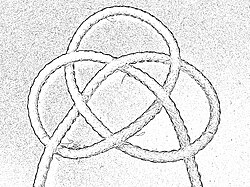Difference between revisions of "AY Honors/Macramé/Answer Key/es"
(Created page with "{{clear}}") |
(Created page with "{{clear}}") |
||
| Line 37: | Line 37: | ||
Common materials used in macramé include cotton twine, hemp, leather or yarn. | Common materials used in macramé include cotton twine, hemp, leather or yarn. | ||
| − | + | {{clear}} | |
| − | |||
| − | |||
| − | |||
<noinclude></noinclude> | <noinclude></noinclude> | ||
Revision as of 21:08, 25 January 2021
| Macramé | ||
|---|---|---|
| Asociación General
|
Destreza: 1 Año de introducción: 1975 |
|
Requisitos
|
La especialidad de Macramé es un componente de la Maestría Artesanía. |
1
2
Cotton seine twine is recommended for the beginner because with this material, the patterns are easier to see and the knots are easy to tighten.
3
Common materials used in macramé include cotton twine, hemp, leather or yarn.
4
Overhand Knots
Adventist Youth Honors Answer Book/Knot/Overhand
Square Knots
Adventist Youth Honors Answer Book/Knot/Square
Half Hitches
Clove Hitches
Adventist Youth Honors Answer Book/Knot/Clove hitch Adventist Youth Honors Answer Book/Knot/Constrictor
Lark's Heads
Single Hitches
Macramé Knots
Josephine Knots
5
Overhand knots can be used to tie two cords together at the bottom of a piece, to fasten a cord to a bead or pearl, or to serve as a decorative knot in the pattern.
6
The length of cord needed for a finished product is directly dependent on the types of knots used. It also depends on how much knotting is done on a given cord. Anchor cords will have fewer (if any) knots compared to working cords. A general rule of thumb is to allow yourself five times more cord than the length of the product. A better guideline is to experiment. Tie a short section (at least a couple of inches (10 cm) long). Measure it, and then untie it and measure the amount of cord used. If 2 inches of your sample required 12 inches of cord, you will need six times as much cord.
7
You will want to search the internet or check books for patterns. Have fun on the practical part of the Honor.
8
Vea los nudos anteriormente. ¡Diviértase al crear!
Referencias
- Categoría: Tiene imagen de insignia
- Adventist Youth Honors Answer Book/Honors/es
- Adventist Youth Honors Answer Book/es
- Adventist Youth Honors Answer Book/Skill Level 1/es
- Categoría: Libro de respuestas de especialidades JA/Especialidades introducidas en 1975
- Adventist Youth Honors Answer Book/General Conference/es
- Adventist Youth Honors Answer Book/Arts and Crafts/es
- Adventist Youth Honors Answer Book/Arts and Crafts/Primary/es
- Adventist Youth Honors Answer Book/Artisan Master Award/es
- Adventist Youth Honors Answer Book/Stage 0/es
- Adventist Youth Honors Answer Book
